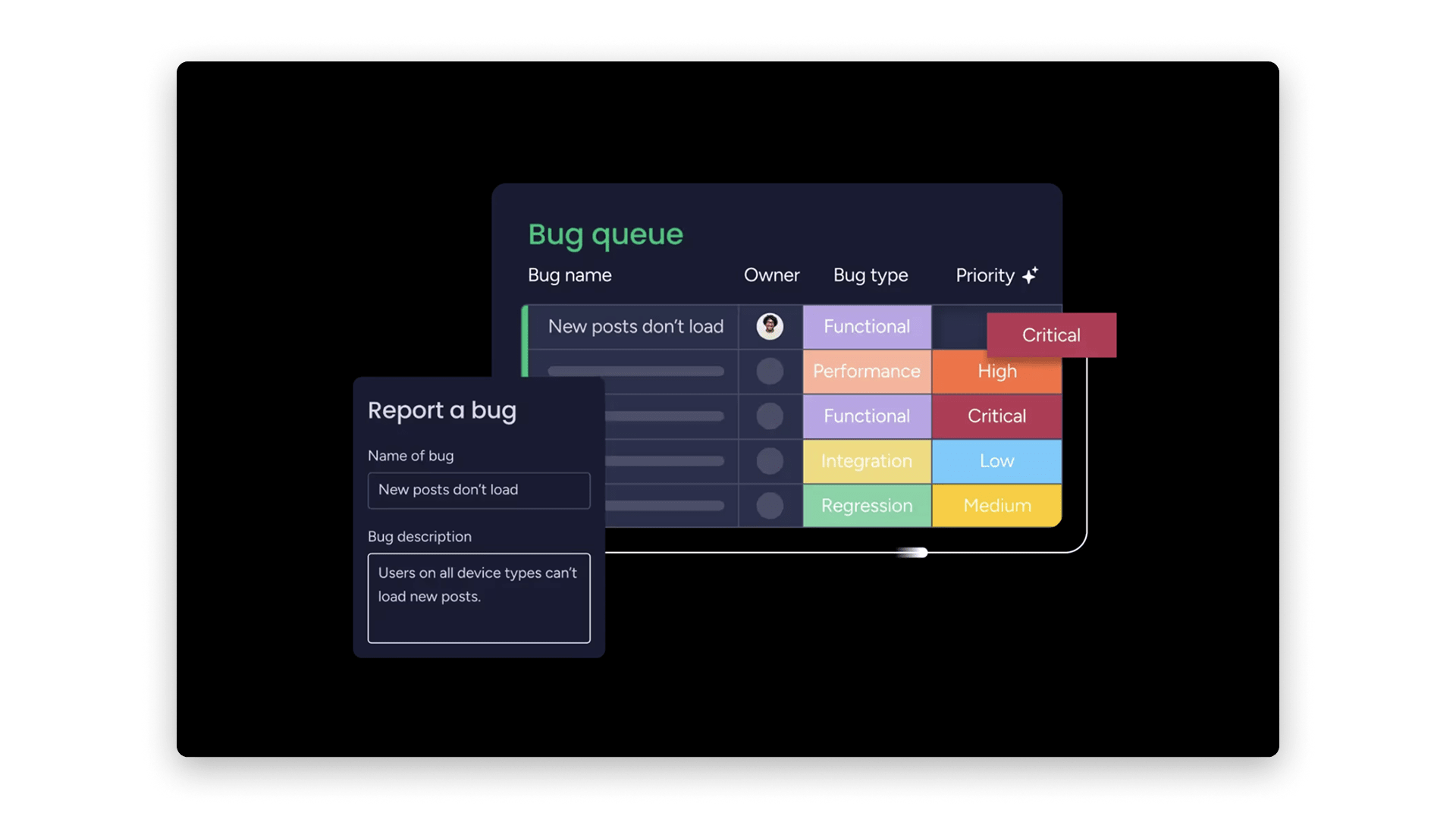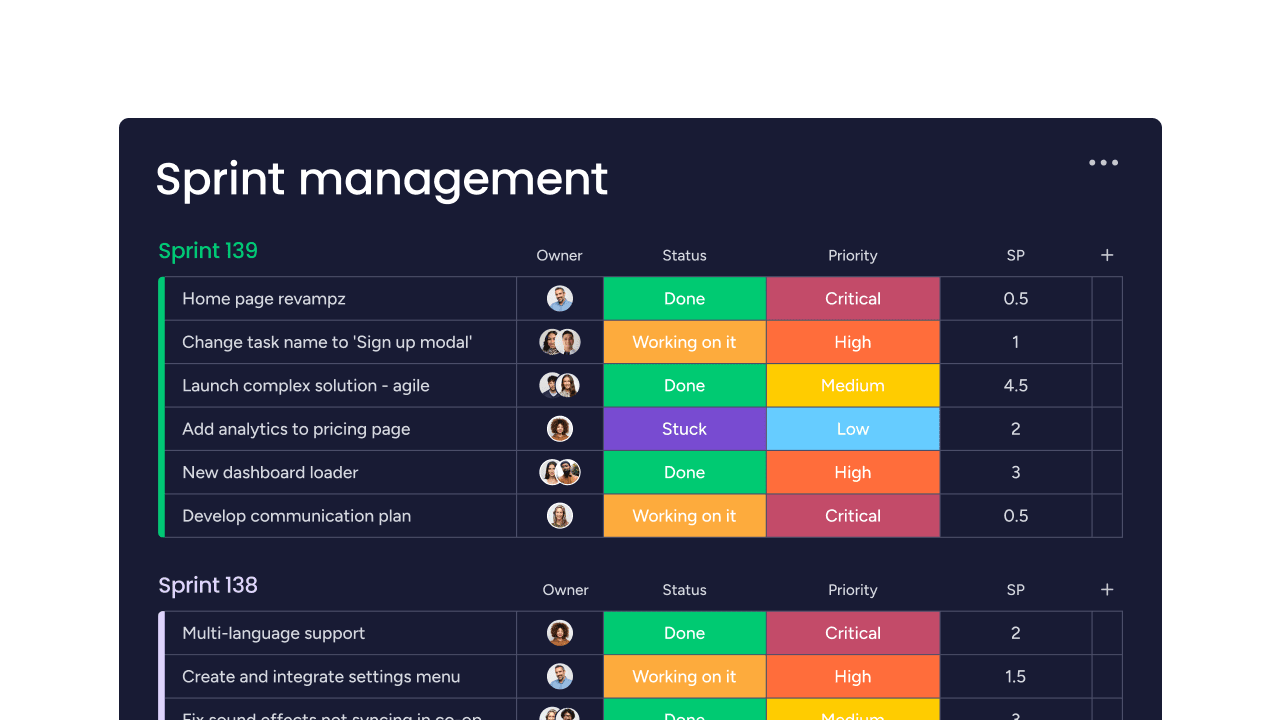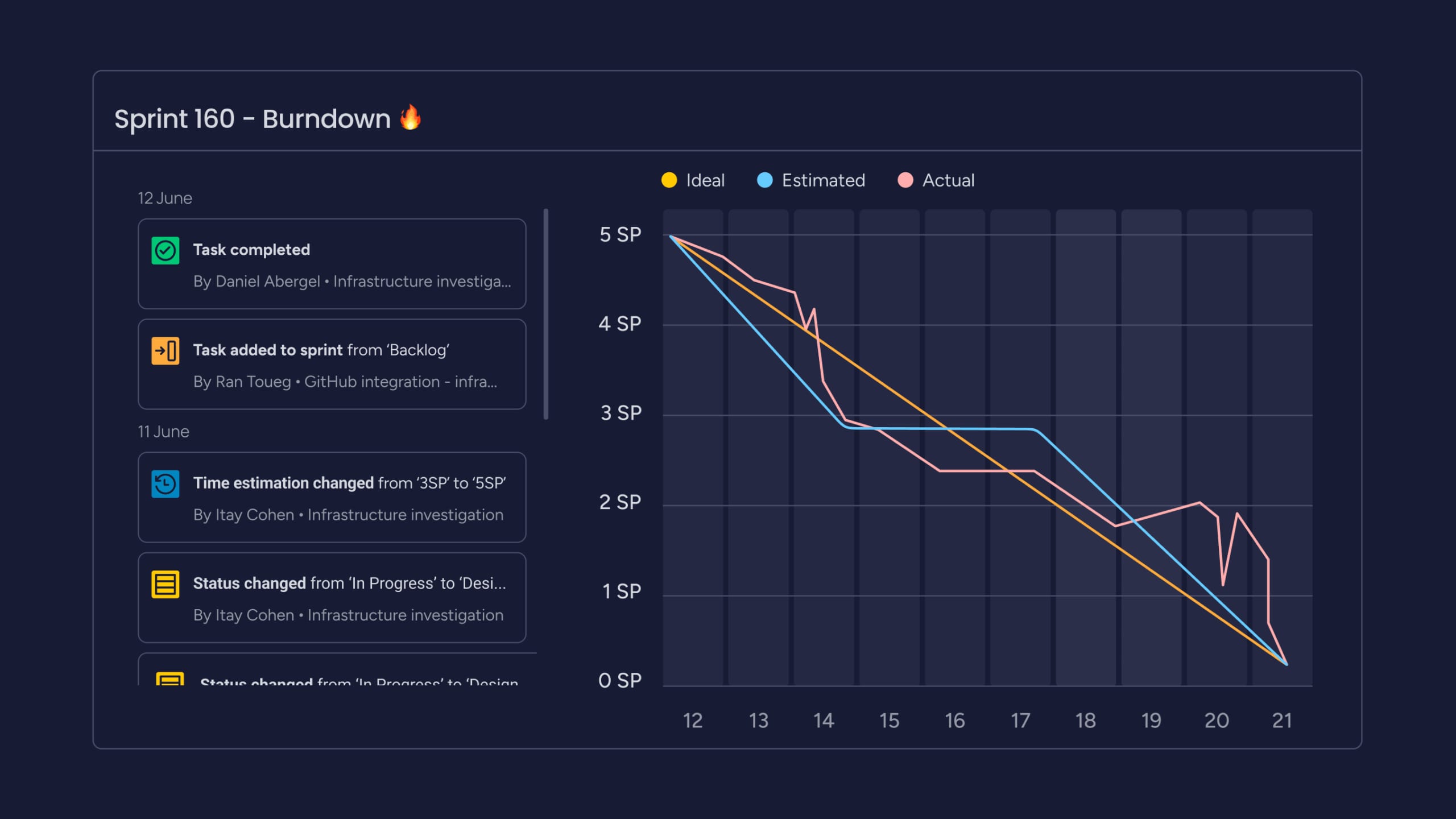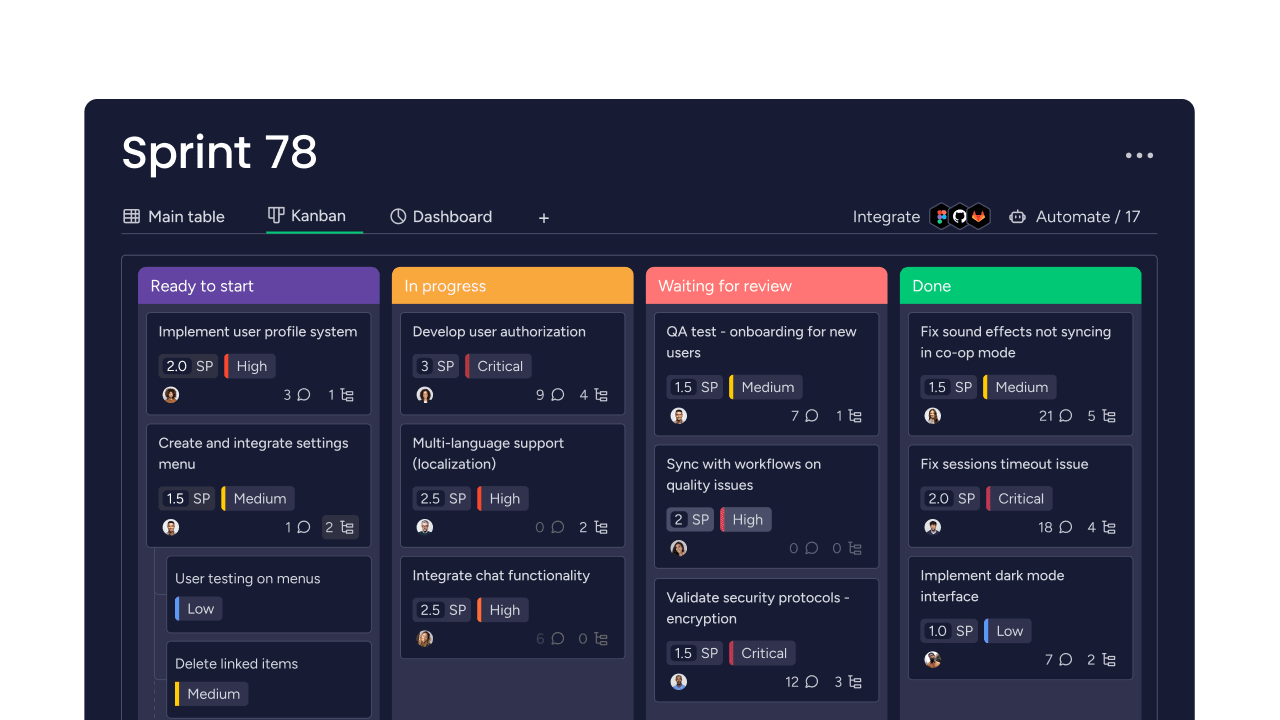The best engineer on the team doesn’t automatically make the best leader. The skills that create a top individual contributor are different from those needed to guide a team toward its goals. True technical leadership is less about personal output and more about multiplying the impact of the entire team. It marks a fundamental shift from doing the work to enabling great work.
Mastering these skills transforms leaders from great engineers into a force multiplier for the entire organization. It is about creating clarity, fostering collaboration, and building adaptive processes that help the team ship faster and with more confidence. The journey starts with a clear understanding of what the role truly entails.
This functional guide shines a light on what effective technical leadership looks like in practice. It explores the essential skills required, from deep technical expertise to cross-functional communication. This article also covers how to make the leap from developer to leader, manage core responsibilities, and create an environment where the team can succeed.
Key takeaways
- Focus on multiplication, not output: technical leadership is defined by guiding teams through expertise and strategic thinking, focusing on solving complex problems and multiplying the team’s overall impact, not personal coding output.
- Seven core skill areas: effective leadership requires mastering a blend of skills: deep technical knowledge, cross-team communication, mentorship, systems thinking, data-driven decisions, agile workflows, and continuous learning.
- Prioritize psychological safety: leaders must create an environment of psychological safety where engineers feel secure enough to ask questions, admit mistakes, and propose new ideas without fear, which builds trust and accelerates problem-solving.
- Flexible tools enhance visibility: modern solutions like monday dev provide flexible workflows and real-time dashboards that adapt to your team’s needs, allowing leaders to track progress and maintain visibility across engineering and business teams without resorting to micromanagement.
- Balance hands-on & guidance: leaders must balance hands-on coding with leadership by prioritizing work that unblocks the team or sets technical direction, delegating routine work while staying engaged in critical architectural decisions and code reviews.
What is technical leadership?
Technical leadership is guiding engineering teams through deep technical knowledge and strategic thinking rather than formal authority. This means you influence others by demonstrating expertise, making sound architectural decisions, and helping teams deliver high-quality solutions.
Unlike traditional managers who rely on their position in the org chart, technical leaders earn respect through their ability to solve complex problems and guide technical direction. You’ll find technical leaders at the intersection of hands-on engineering and business strategy, translating between technical constraints and business needs.
In fact, a 2023 McKinsey Global Survey found that 70% of organizations reported accelerating their use of digital technologies since the pandemic, highlighting the increasing need for technical leaders who can bridge technology and business strategy.

"monday dev empowered us to optimize our GTM approach, resulting in faster, more dependable deliveries"
Steven Hamrell | Director of Product Management
"monday dev empowers us to manage the entire development process on one platform so we can speed up product delivery and improve customer satisfaction"
Mitchel Hudson | Head of Technology
"We're operating in an open, deep trusting, transparent environment with no silos of information. It's about completely opening access to everyone who needs it."
Alan Schmoll | Executive Vice President, Vistra PlatformTechnical leadership vs people leadership
Technical leadership and people leadership serve different purposes in engineering organizations. Understanding when to use each approach helps you lead more effectively.
Technical leaders influence through expertise and focus on system design, technical decisions, and innovation. People leaders use formal authority to focus on team development, performance management, and morale. Here’s how they differ in practice:
- Influence source: technical leaders earn influence through knowledge; people leaders through organizational roles.
- Primary focus: technical leaders prioritize architecture and technical outcomes; people leaders prioritize team growth and engagement.
- Communication style: technical leaders use precise, data-driven language; people leaders use coaching and empathy.
- Success metrics: technical leaders measure system performance; people leaders measure team productivity and retention.
When should you emphasize each style? Technical leadership works best during architectural decisions, technical crises, and technology evaluations. People leadership shines when addressing team conflicts, performance issues, and organizational change.
The most effective leaders also master the art of blending both approaches based on immediate team needs. Modern platforms like monday dev support this necessary flexibility through customizable workflows that adapt to whether the immediate priority is technical rigor or team development.
7 essential technical leadership skills
Technical leaders need specific skills that go beyond coding ability. These seven capabilities form the foundation of effective technical leadership.
1. Deep technical expertise with strategic vision
You need solid technical knowledge to make informed decisions and guide your team. But expertise alone isn’t enough; you must connect technical choices to business goals.
Stay current with technology trends to spot opportunities and avoid pitfalls. Translate complex technical concepts into business language. For example, explain how microservices reduce maintenance costs rather than diving into implementation details.
Know when to dive deep into code reviews and when to focus on long-term strategy. Advanced solutions like monday dev help maintain this balance through dashboards that track both tactical execution and strategic progress.
2. Cross-functional communication
Bridge the gap between engineering and non-technical teams. Transform technical concepts into clear information that product, design, and business stakeholders can understand and act on. In fact, a 2025 academic survey from Stanford University found that 62% of engineering managers cited cross-functional communication as the most critical skill for technical leaders in distributed teams.
Common communication challenges you’ll face include:
- Technical debt explanations: show executives how debt impacts customer experience.
- Requirement alignment: balance product wishes with technical feasibility.
- Dependency coordination: help multiple teams understand their interconnections.
Use visual aids and analogies to make complex topics accessible. Strong communication builds trust and accelerates decision-making across your organization.
3. Effective team mentorship
Technical mentorship goes beyond traditional management. Guide engineers through code reviews, architecture discussions, and pair programming sessions.
Identify growth opportunities for each team member. Provide specific, actionable feedback. Share knowledge through technical talks and documentation. When a junior engineer designs their first API, guide them through best practices while letting them make decisions and learn.
Foster a culture where questions are welcome and mistakes become learning opportunities. Model this by admitting when you don’t know something and celebrating learning moments. Organizations investing in technical mentorship programs saw a 30% increase in employee retention among engineering teams over a two-year period, according to a 2025 Reuters report.
4. Systems thinking and architecture
See beyond individual components to understand how everything connects. Map dependencies, anticipate scaling challenges, and design for long-term maintainability.
Technical leaders evaluate trade-offs like performance versus complexity or build versus buy decisions. Create architecture diagrams and document design decisions that help teams see the bigger picture.
This perspective helps you identify when shortcuts create future problems and when they represent acceptable trade-offs. You’ll prevent technical debt accumulation that slows future development.
5. Data-driven decision making
Use metrics to guide decisions at every level. Track performance monitoring, error rates, uptime, and technical debt to inform architectural choices.
Key metrics for technical leaders include:
- Deployment frequency: how often do you ship code?
- Lead time for changes: speed from commit to production.
- Mean time to recovery: how quickly do you fix issues?
- Code coverage and bug rates: quality indicators.
You should always present data to justify technical investments. Platforms like monday dev provide real-time dashboards that surface critical trends early, allowing you to make proactive course corrections long before issues can negatively impact delivery.
6. Agile workflow design
Design workflows that balance feature delivery with technical improvements. Ensure sprint planning includes refactoring, infrastructure upgrades, and other technical work.
Adapt processes to fit your team’s strengths and project requirements. Introduce automation like continuous integration to support reliable delivery. Recognize when processes create friction and adjust them.
Platforms like monday dev let you create flexible workflows and automate repetitive tasks as team needs evolve.
7. Continuous learning mindset
Stay ahead in a rapidly evolving field while developing leadership skills. Invest in ongoing education through courses, conferences, and peer learning.
Encourage experimentation with new technologies. Create space for learning through innovation time, conference attendance, or knowledge-sharing sessions. Develop understanding beyond technical skills; learn business strategy and organizational dynamics too.

Making the leap from developer to leader
Moving from individual contributor to technical leader requires fundamental mindset shifts. Success no longer means writing the best code, but enabling your team to succeed.
Key mindset shifts you’ll need to make:
- From doing to enabling: celebrate when team members solve problems independently.
- From perfection to pragmatism: balance ideal solutions with real constraints.
- From technical purity to business value: consider customer impact, not just code elegance.
- From local to system optimization: think about entire systems, not just components.
Allocate dedicated time for code reviews and architectural discussions. Take selective deep dives into critical projects to stay current with the codebase and technical challenges. The goal is to stay involved in key decisions without becoming a decision-making bottleneck for the team.
Balance hands-on coding with leadership by focusing personal coding efforts on work that unblocks the team or sets a clear technical direction. Delegate routine implementation tasks to develop team members while maintaining oversight through established code reviews and technical standards.
What are the core technical leadership responsibilities?
Technical leaders shape the technical direction, quality, and innovation of engineering teams. Your responsibilities extend beyond individual contributions.
- Set engineering standards: that provide clarity while allowing flexibility. Define code review processes, documentation requirements, and testing strategies. Involve teams in creating standards to ensure buy-in.
- Guide architecture decisions: using frameworks to evaluate trade-offs. Document choices for future reference. Act with incomplete information, gathering input and iterating as you learn more.
- Manage technical risk: by identifying issues early. Address technical debt, security vulnerabilities, and scalability concerns. Communicate risks in business terms so stakeholders understand priorities.
- Enable innovation: alongside delivery commitments. Introduce experimentation frameworks and create space for new ideas. Run hackathons, proof-of-concept projects, and innovation sprints. Celebrate learning from both successes and failures.

Leading a technical team to success
Create an environment where teams perform their best while maintaining sustainable pace and quality.
- Build psychological safety: so engineers can admit mistakes, ask questions, and propose ideas without fear. Model vulnerability in your own behavior. Run blameless post-mortems. Encourage open dialogue during code reviews. Teams with psychological safety solve problems faster because members share concerns early and take calculated risks.
- Design adaptive workflows: that evolve with team needs. Gather feedback regularly and adjust processes to eliminate bottlenecks. Customizable boards and automation provided by solutions like monday dev help teams adapt quickly without rigid constraints.
- Track progress: while empowering team autonomy. Use meaningful metrics and regular check-ins while trusting teams to self-organize. Focus on outcomes and blockers rather than daily activities.
How to manage project pressure as a technical leader
Navigate the tension between quality and deadlines through clear communication and strategic trade-offs.
Set realistic expectations by communicating technical constraints clearly. Use estimation techniques to forecast delivery and negotiate scope. When facing unrealistic demands, explain trade-offs and propose alternatives that protect quality.
Protect team well-being to ensure sustainable delivery. Distribute workloads evenly and recognize stress signs. Create buffer time for unexpected challenges. Push back on unreasonable deadlines and celebrate achievements to maintain morale.
When delivering under constraints, make transparent trade-offs between scope, quality, and speed. Use frameworks like MoSCoW prioritization to balance competing demands. Plan to address any compromises in future iterations.

5 ways to level up your technical leadership
1. Master asynchronous communication
Document decisions and use platforms that support time zone flexibility. Create detailed meeting notes and decision logs that reduce real-time meeting needs.
2. Build feedback-first culture
Establish regular code reviews and architectural feedback sessions. Make feedback specific, actionable, and focused on technical growth.
3. Champion developer experience
Select intuitive platforms and streamline development environments. Invest in fast build pipelines and clear documentation to boost productivity.
4. Bridge engineering and business
Translate technical initiatives into business value. Develop business cases for technical projects and align roadmaps with organizational goals.
5. Lead with radical transparency
Share technical challenges openly and involve teams in decisions. Publish technical roadmaps and hold open architecture reviews.
Technical leadership in the AI era
The rapid advancement of AI is reshaping how technical leaders must guide their teams. Your expanded role now centrally involves integrating AI responsibly while diligently maintaining core team capabilities:
- Strategic AI evaluation: leaders must evaluate AI platforms based on accuracy, reliability, and integration complexity. Introduce new AI tools through targeted pilot projects that clearly demonstrate tangible value, using AI for applications like predictive analytics, automated task management, and intelligent code reviews.
- Building AI-literate teams: develop team capabilities by providing targeted training on foundational AI concepts and ethical considerations. Focus skill development on areas like data analysis and prompt engineering, ensuring that teams can leverage AI tools effectively without sacrificing critical thinking abilities.
- Leading responsible AI implementation: take the lead on responsible AI by proactively addressing bias detection and transparency. This requires monitoring AI outputs closely, documenting decision processes involving AI, and ensuring diverse perspectives are included in all AI-related decisions.

How does monday dev help transform technical leadership?
Providing practical solutions for technical leadership challenges, monday dev uses adaptive workflows and real-time visibility.
Create flexible workflows that match your team’s specific needs using customizable boards and columns. Whether using Agile, Scrum, or custom methodologies, configure sprint boards with drag-and-drop functionality and custom statuses that support your approach without forcing rigid structures. Use board templates for common workflows like bug tracking, feature development, or technical debt management.
Gain real-time visibility through customizable dashboards that aggregate data from multiple boards. Track sprint velocity, deployment frequency, and bug resolution rates with visual widgets including charts, timelines, and battery indicators. Set up automated notifications and status updates so you stay informed about blockers and milestones without requiring constant manual updates that interrupt flow.
Enable seamless cross-team alignment with shared boards, @mentions, and integrated communication threads. Use the platform’s two-way integrations with GitHub, GitLab, and Jira to sync code commits and pull requests directly into your workflow. Coordinate with product and business teams through connected boards that maintain transparency across departments while maintaining engineering velocity.
Finally, leverage automations to trigger notifications when dependencies shift or when code reviews need attention.
Elevate your technical leadership today
Technical leadership combines deep expertise with strategic vision and team enablement. The most effective leaders create environments where teams perform their best while maintaining alignment with organizational goals.
Building flexible workflows and fostering transparent processes are hallmarks of exceptional technical leadership. Ready to transform how your team collaborates and executes?
Frequently asked questions
How do technical leaders manage distributed teams effectively?
Technical leaders manage distributed teams effectively by establishing clear communication channels, leveraging asynchronous documentation, and maintaining consistent technical standards across locations: a crucial approach when managing software teams to ensure collaboration despite physical distance.
What specific training accelerates technical leadership growth?
Training that accelerates technical leadership growth includes courses on system architecture, agile methodologies, cross-functional communication, and mentorship, plus practical experiences like leading technical projects or participating in architecture review boards.
How much hands-on coding should technical leaders do?
Technical leaders should focus coding efforts on work that unblocks the team or sets technical direction, while delegating routine implementation tasks to empower others and maintain strategic oversight of the broader system.
What career paths typically follow technical leadership roles?
Career paths after technical leadership roles include progression to principal engineer, staff engineer, architect, or engineering director positions, allowing continued technical influence or broader organizational management responsibilities.
How do technical leaders keep their skills current while leading teams?
Technical leaders keep skills current by allocating dedicated time for technical research, participating in code reviews, engaging with technical communities, and staying involved in key architectural decisions alongside leadership duties.
What separates technical leads from engineering managers?
Technical leads primarily influence through technical expertise and architectural guidance while focusing on system design, whereas engineering managers emphasize team development, performance management, and organizational alignment through formal authority.
